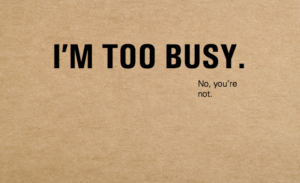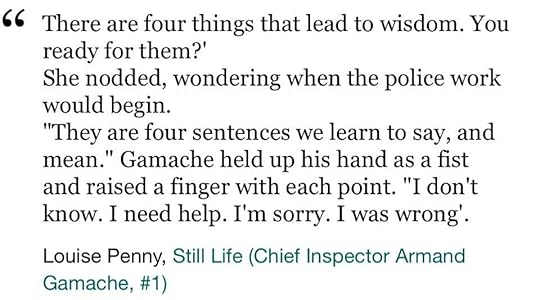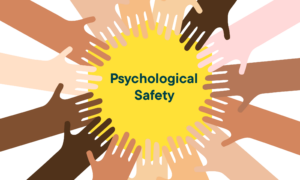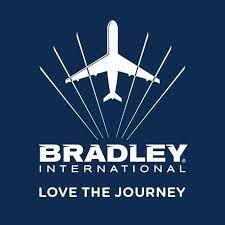Matthew Dicks's Blog, page 100
January 24, 2023
Not busy. Complex.
People are fond of talking about how busy they are these days. More specifically, they enjoy lamenting about how busy the modern world has become.
I’m not a fan of this complaint.
I suspect that the colonists of the early eighteenth century – who grew all their food, made their own clothing, heated their own homes, and battled every element absent any substantial government service – were quite busy, too.
Perhaps even more so.
The same probably holds true for Americans struggling through the Great Depression, World War II, or any number of times in American history. To propose that we are busier today than our predecessors strikes me as ego-centric and shortsighted.
Recency bias at its best.
We’re not inherently busier than our predecessors. In fact, so much of life has gotten a lot easier thanks to advances in technology. As I write these words, a machine is washing my dishes. Another is drying my clothing. Others are heating my home, keeping my food chilled, and brightening my room. And except for the press of a couple of buttons and the flick of a switch, I did nothing to make any of this happen.
I’m writing this sentence on a machine that allows me to check my spelling and correct typos instantaneously. It offers me the answer to almost any factual question by simply typing the question. It preserves all of my work in several places without any effort on my part. It allows me to contact people all over the planet with a few simple keystrokes.
Do you really think we’re busier than an 18th-century American?
I don’t think so.
What I might argue, however, is that the world is more complex today than ever before. Human beings are required to process more information and data than at any other time in human history. As technology evolves and expands, so, too, does the requirement to master that ever-changing technology. We’re also more connected to other people today than ever before, thus widening social circles that we must then manage and navigate.
The world has perhaps grown incredibly complex, but busier?
Try living in the winter of 1743, when nearly every bit of heat, light, food, drink, and clothing was made through your hard labor alone.
Or how about January of 1862, at the height of the Civil War?
Or the fall of 1904, when children were working alongside adults in factories and mills up and down the east coast?
You may be busy today, and the world may be more complex than ever before, but I hardly think you’re busier than previous generations.

January 23, 2023
Four important things to say
Years ago, Elysha and I were waiting in the green room prior to a Moth GrandSLAM in Brooklyn. One of our friends was telling a story, and in the midst of it, Elysha asked him to explain a word she didn’t understand.
Our friend paused in disbelief.
“What?” Elysha asked.
“It’s just so odd to hear someone admit to not knowing something. Your confidence is astounding. And beautiful.”
It was a small moment, but I’ll never forget it because our friend was right. Elysha could’ve simply allowed the unknown word to pass by unmentioned.
Many people would, I think.
But being who she is, Elysha did not. Not knowing something isn’t a problem when you’re a strong, confident person.
Conversely, “I don’t know” can be difficult for someone struggling with confidence. Also, anyone who feels like they don’t belong and perhaps never quite belong. Also, anyone who lives in fear of being judged and who places enormous weight upon that judgment.
“I don’t know” is also nearly impossible to say for thin-skinned egotists, frightened little monsters, and pathetic pretenders.
But if you feel relatively good about yourself and your position in the world, “I don’t know” should not be hard to say unless you are cursed with the ridiculous belief that you should know everything.
Along similar lines, my friend, Casey, sent me this excerpt that I liked quite a bit.
Four equally challenging questions for people who think that false bravado, pompous puffery, illusionary stature, and self-aggrandizement are worthy pursuits.
They are perhaps four of the most important sentences a person can say. Just as important, perhaps, as “I love you” and “Hold the pickles.”
These are the kinds of sentences that only the best of us can speak with any regularity.

January 22, 2023
“Genuinely” makes this message genuinely special
My children don’t yet own phones. They are 13 (14 in three days!) and 10 years old. Too young in our estimation for unfettered access to the sometimes beautiful, oftentimes dangerous, disastrously distracting, and all-too-often soul-crushing world of the internet.
But when they are home, they can send text messages to Elysha and me, as well as friends, via an iPad.
Admittedly, I enjoy getting the occasional message from my kids. They are often requesting favors or asking me to settle disputes, but still, it’s always surprising to see their names pop up on my phone.
Charlie was texting me on my way home from Florida last week. Check out the last text in this series of messages:
“I will genuinely stay up all night long waiting for you to get home.”
I adore the way a singular word – in this case, “genuinely” – can turn an already sweet sentence into something that shines. It’s a sentence that has probably never been written in the history of humankind, thanks to that one word.
It’s a good lesson for writers and storytellers:
Find the right word (and be daring enough to use it), and you can turn an otherwise ordinary sentence into something beautiful, impactful, and unforgettable.
Something that will make your audience smile, laugh, and maybe even shed a tear.

January 21, 2023
How To Grow Old
Stop whatever you are doing and read Bertrand Russell’s essay “How to Grow Old.”
I adore this essay.
In speaking about his maternal grandmother, he wrote:
“I do not believe that she ever had time to notice that she was growing old. This, I think, is the proper recipe for remaining young. If you have wide and keen interests and activities in which you can still be effective, you will have no reason to think about the merely statistical fact of the number of years you have already lived, still less of the probable shortness of your future.”
I love this so much, and I support it wholeheartedly, As I’ve written about many times, when faced with a choice, always choose the option that expands your life.
In speaking about the fear of death, he wrote:
“The best way to overcome (the fear of death) -so at least it seems to me- is to make your interests gradually wider and more impersonal, until bit by bit the walls of the ego recede, and your life becomes increasingly merged in the universal life. An individual human existence should be like a river: small at first, narrowly contained within its banks, and rushing passionately past rocks and over waterfalls. Gradually the river grows wider, the banks recede, the waters flow more quietly, and in the end, without any visible break, they become merged in the sea, and painlessly lose their individual being. The man who, in old age, can see his life in this way, will not suffer from the fear of death, since the things he cares for will continue.”
I’d love to be able to say that this paragraph mitigates my relentless fear of death, but it did not.
At least not yet.
But maybe the wisdom of his words will eventually penetrate my obstreperous, stubborn mind.
I hope so.
Nevertheless, It’s a brilliant essay. Enlightening, amusing, insightful, and so original.
Also, it’s short, which adds to its brilliance. It’ll take you less than five minutes to read.
No excuses. Read it now.

January 20, 2023
“Trust destroying and demeaning practices”
Barry-Wehmiller, a company that promotes psychological safety for its employees, has made its mission to “remove the trust-destroying and demeaning practices for responsible adults.”
I like this phrase a hell of a lot.
I think many workplaces contain some degree of “trust-destroying and demeaning practices for responsible adults.” I’ve experienced some of these practices firsthand over the course of my life but have also seen many of my clients suffer through them on a daily basis.
Some of these practices include:
Not allowing virtual work to be done offsite. If a job could be completed anywhere in the world, it takes a special kind of jackass to stop employees from doing so.
This is not to say that I am opposed to bringing workers back to the office. Disney recently ordered its workforce back to the office for four days a week. As a Disney shareholder and a reasonable human being, I have no problem with this decision. Communication, collaboration, and creativity are better served by face-to-face interactions.
Many Disney employees are opposed to this change, of course, but I’m willing to bet that many of them have children who they happily send to school each day with no qualms over teachers being “in the office” five days a week, oftentimes in poorly ventilated rooms filled with of two dozen human beings, many of whom are coughing, sniffling, and sneezing daily.
But by the same token, when a teacher is given two hours to complete report cards during designated professional development time, and their asinine administrator requires that work be done within the walls of the school, this qualifies as a “trust-destroying and demeaning practice for responsible adults.”
It’s also no longer professional development time because the teacher is not being treated as a professional.
Similarly, bosses who monitor the comings and goings of employees to determine who is arriving at the office last and leaving first each day are engaging in “trust-destroying and demeaning practices for responsible adults.”
When an employee wants to take an allocated personal day but is required to provide their employer with an explanation about what they will be doing with that day, this qualifies as a “trust-destroying and demeaning practice for responsible adults.”
When an employee is sick but can only use an allocated sick day if they get a doctor’s note, this qualifies as a “trust-destroying and demeaning practice for responsible adults.”
When employers impose rigorous and unnecessary dress codes on employees, this amounts to a “trust-destroying and demeaning practice for responsible adults.”
When a VP of marketing takes five minutes to review a month of work from her team and then bases her assessment of that work on a gut feeling or a personal preference, absent any questions about rationale or strategy, this qualifies as a “trust-destroying and demeaning practice for responsible adults.”
When an employer does not offer positive feedback on a routine basis for a job well done, this amounts to a “trust-destroying and demeaning practice for responsible adults.”
When employees are not afforded a modicum of control over the temperature of their workspace, this qualifies as a “trust-destroying and demeaning practice for responsible adults.”
When a boss is incapable of admitting to a mistake, unable to apologize, or is engaged in self-preservation by blaming their employees for the mistake, this amounts to “trust-destroying and demeaning practice for responsible adults.”
An administrator asked me to lie to cover up his mistake. Not only did I refuse to lie, but his request afforded me glorious leverage over him since I could now report his mistake and his request for deceit to his superior if needed.
This is what happens when you destroy trust and attempt to demean your employees.
I was once told by that same administrator that I could not leave the building during my assigned lunch break to pick up food or run an errand. I ignored this ridiculous demand because it amounted to little more than a “trust-destroying and demeaning practice for responsible adults.”
Also, that administrator was a fool.
Psychological safety is an environment that encourages, recognizes, and rewards individuals for their contributions and ideas by making individuals feel safe when taking interpersonal risks. It is the single greatest indicator of whether a team will be successful, and part of ensuring that people feel psychologically safe is by treating them as trustworthy, responsible, autonomous adults who are capable of making excellent decisions for the person or organization that employs them.
Eliminating “trust-destroying and demeaning practice for responsible adults” would go a long way to making this happen.
Sadly, many managers, administrators, and bosses are incapable of eliminating these practices from the workplace because they are poor leaders, untrained administrators, micromanaging fools, ineffective teachers, and incapable delegators.
A lack of confidence, a high degree of narcissism, and stupidity can sometimes play a role.

January 19, 2023
Friendship Application 4.0
According to the New York Times, American men appear to be stuck in a “friendship recession” — a trend that predates the pandemic but that seems to have accelerated over the past several years as loneliness levels have crept up worldwide.
In a 2021 survey of more than 2,000 adults in the United States, less than half of the men said they were truly satisfied with how many friends they had, while 15 percent said they had no close friends at all — a fivefold increase since 1990.
That same survey found that men were less likely than women to rely on their friends for emotional support or to share their personal feelings with them.
This makes the updating of my Friendship Application perhaps a little foolish. Originally published in 2010, then updated in 2012 and 2015, the Friendship Application was originally designed to identify those people in my life who possessed the best friendship potential.
Of course, I believe that you can’t have enough good friends. Elysha has given me many remarkable gifts over the year, but perhaps the best gifts of all have been introducing me to a handful of friends who mean the world to me today.
I’ll take people over stuff any day.
But I also believe you can definitely have too many bad friends, defined as people who are persistently negative, endlessly draining, filled with drama, and time-suckingly boring.
We don’t have enough time in the day for people who are incapable of making us happy.
Thus the Friendship Application was born.
It’s more tongue-in-cheek these days. I’m happy to fill my life with anyone who can bring me a little joy.
But it also reflects my honest-to-goodness preferences in terms of the kind of person to whom I am drawn.
In order to possess a high degree of friendship potential, you must achieve a score of 160 out of 255 points.
This does not mean that if you score less than 160 points, we can’t be friends. One of my closest friends did not score 160 points. I think of it as more of a predictor of how likely we would become friends if we had just met for the first time.

January 18, 2023
Your nervous “because you care” is nonsense.
There are many reasons to be nervous onstage. One of the more popular reasons offered – and possibly the only reason I’ve ever heard someone offer – is that people are nervous about public speaking because they care.
This is true, of course, but it doesn’t make much sense when trying to understand nervousness onstage.
We care about many things we do in life, but not all of them make us nervous.
I care deeply about safely getting my kids to school every morning, but I’m not nervous about doing so.
It’s a decidedly incomplete explanation of nervousness while public speaking.
It’s also the least important reason and not helpful at all.
In fact, claiming that people get nervous onstage because “they care” discounts everyone who cares deeply about their performance but does not get nervous.
Like me.
I’m almost never nervous onstage. I like to say that a unique combination of arrogance and stupidity combine to form a coat of armor that protects me from the pointed spear of nervousness, but in truth, I suspect it’s because of a few reasons:
I’ve been speaking to audiences all my life, first at Boy Scout camp, then later as a wedding DJ, minister, actor, college debater, and teacher. I took public speaking in college and campaigned for President of the Student Council. I had spent thousands of hours standing before audiences by the time I told my first story or delivered my first formal speech onstage.
My nervousness, if it ever existed, probably died a long time ago.
Quite the opposite; I can’t wait to get onstage. I’m excited about standing before people and talking.
Perspective also helps. After you’ve been on trial for a crime you didn’t commit, homeless, and had a gun pressed to your head and the trigger pulled, a roomful of Brooklyn hipsters or an auditorium of Silicon Valley executives aren’t quite so intimidating anymore.
But if you’re nervous when speaking in public, or just before speaking in public, it’s not simply because you care. There are other relevant, far more common reasons to be nervous when speaking to audiences. People who make the “because you care” argument have either overlooked these reasons or are afraid to speak of them.
Or, and this is quite possible, they’ve never actually been onstage before or haven’t performed onstage very often. The number of speaking and storytelling coaches and directors who have never done or rarely done the job themselves is both astounding and terrible. In these cases, these inexperienced coaches repeat something they’ve heard before because they can’t possibly know or understand what it feels like to perform onstage routinely.
But understanding the real reasons behind being nervous can help you mitigate some of those nervous feelings.
Knowing, they say, is half the battle.
In that spirit, here are the more common, relevant, and accurate reasons for being nervous onstage:
You’re all alone. You have no safety net when delivering a speech or telling a story. No one is standing in the wings, ready to offer you a line or fill in a gap, as stage actors will often do for one another. Doing anything publicly and utterly alone is bound to make you nervous.The environment is unfamiliar. No one has a stage in their home, and even if they did, they don’t have an audience waiting for a performance. New experiences are often nerve-wracking. Doing things under unknown or novel conditions can be downright frightening. It makes sense to be nervous. Everything about speaking on a stage is uncommon and often unknowable.Public speaking requires enormous amounts of bandwidth. You need to remember what to say while simultaneously saying it. That’s hard enough. Add to this the monitoring of how you’re saying it and adjusting the way you’re saying it depending on a multitude of factors. You’re also likely to be monitoring audience response as well as yourself for any emotional reactions you might be experiencing. You may have a slideshow to click through. Blocking to remember. A timer to keep in mind. Bright lights shining in your eyes. Transitions to nail. Punch lines to land. Sour-faced audience members in the front row. Public speaking of any form is exceptionally taxing on the human mind.You can’t take a break to collect yourself without making everyone in the room feel awkward. Once you begin, you can’t stop. How many things do people do in life wherein they can’t take 30 seconds or three minutes to regroup? Not many.Public speaking, like writing, is deeply vulnerable. It reveals a bit of your heart, mind, and even soul. When you speak to an audience, you demonstrate thought, share ideas, reveal your facility with the language, express yourself creatively, and publicly declare that your words are worthy of attention. Few things in life expose oneself so openly and completely as speaking to an audience.Rotten human beings exist, and you know they could be in your audience. Terrible people sometimes say terrible things when they decide you have not done well. They say these things to you and about you. Knowing this makes your performance fraught with peril.Mistakes are easy to spot. It’s rare that your errors are known to anyone other than yourself and perhaps a small group of people. If you blow up a spreadsheet, fail to land a customer, lose your car in a parking garage, or misdiagnose a broken bone, a room full of strangers will not be made aware of your mistake. Most of our errors are known only to us or a small team of people who know and oftentimes adore us and often make similar mistakes themselves. But an audience is an enormous group of people judging every error you make. Mistakes made onstage are public and sometimes very obvious. Even embarrassing.This is why you’re nervous. Not simply because you care but because public speaking is hard.
You should be nervous. It makes sense.
Now for some good news to help mitigate your fear:
Nearly everyone is nervous about public speaking. For every person like me there are thousands of people who are nervous before they speak. I have coached Fortune 500 CEOs who deal with nervousness daily. I’ve performed alongside genuinely famous, exceptionally experienced performers who were still nervous before taking the stage. Being nervous is normal. If you’re feeling nervous, you should know that it’s expected. You’re not flawed and weak or insufficiently prepared. You’re simply human. Everyone makes mistakes. Patti Smith was forced to restart her performance of a Bob Dylan song in front of Bob Dylan at the Nobel Prize award ceremony. If Patti Smith can blank on a song that she has been performing for decades in front of the man who wrote the song at the moment he is receiving the most prestigious honor of his life, it’s possible that you may make a mistake, too. If so, congratulations. You’re in great company.Quite often, the only person who knows you’ve made a mistake is you. Your audience never knows what you intended to say, so when you forget something or present content out of order, you’re often the only person who knows the error is made. You may beat yourself up for it later on (which is also normal), but you will probably be the only one.Mistakes are moments of vulnerability and authenticity. Oftentimes, they are appreciated by an audience. Rather than being a moment of embarrassment, they are often perceived as a moment of levity, humanity, and even humor. They are the signal to your audience that you haven’t memorized your content but are telling it in a prepared but authentic way.You can also do the following things to help dispel some nervousness:
Exercise on the day of a performance. Releasing as much excess energy and adrenaline prior to a performance can help you remain calm while speaking.If caffeine and similar stimulants have an impact on your nervous system, avoid them at least six hours prior to a performance.Slow down. One of the tricks I teach speakers is to identify something in the room that you know your eyes will land on as you speak. An exit sign. A particularly notable person in the audience. An object in the wings. Allow this item to become your “Slow down” reminder. A visual cue to signal that you’re probably speaking too quickly. Every time you see it while you speak, it will remind you to slow down. Slowing down onstage will calm your nerves.Speak positive statements about yourself aloud before you take the stage. Your brain is relentlessly listening to everything you say in order to respond appropriately to your needs. If you tell yourself that you’re going to perform brilliantly, your brain will respond by releasing those feel-good neurotransmitters, which in turn will make you feel good and better prepare you for the stage.Smile. Your brain is also paying attention to everything you do. Research has shown that smiling, even when you’re not happy, will cause the brain to think you are happy and once again release those feel-good neurotransmitters that will calm you down and assist in your performance. So just prior to speaking, smile. Offer your audience your very best smile. Your audience will appreciate it, and so, too, will you.The most important thing to remember is this:
Nervousness is normal. You should expect to feel nervous before speaking to an audience of any size, but you should never allow it to prevent you from entering the arena of public speaking.
Public speaking is a skill that few possess. Storytelling is a superpower. If you’re willing to overcome your nerves by accepting them as an expected and manageable part of the job, you will find your value in your organization increase dramatically, and your ability to connect to others explode exponentially.
You’ll also quickly discover the joy of entertaining and informing an audience. You’ll feel the euphoria over being able to move an audience from laughter to tears and everything in between. You’ll experience the remarkable satisfaction of being known and understood by people who had never met you before.
Don’t allow nervousness to stand in your way. Accept it. Deal with it. Maybe even conquer it someday.
But never let it hold you back.

January 17, 2023
To speak or remain silent?

January 16, 2023
I need a drink
Here’s a stupid thing:
When we arrived at Bradley International Airport on Friday night at 9:00 PM, every single restaurant and retail outlet was closed.
Not a single thing was open.
I’m still battling a lingering cough, and one of the best ways to manage it is to have a drink with me constantly, but after going through airport security, I had nothing to drink and no means of getting anything save the water fountains in the terminal, which produced a trickle of warm, metallic flavored water.
The soda fountains at McDonald’s were still available even though the restaurant was closed, but without a cup, I had no way of making use of them, either
How does an international airport not keep at least one Hudson News or similar retail establishment open for the hundreds of passengers waiting for flights on a Friday night?
Especially in this age of perpetual delays and cancellations, why not keep something open for the passengers spending hours at a time waiting for planes that never arrive?
Two hours after suffering without anything to drink, I finally took action. I returned to the McDonald’s, and under the curious gaze of four pilots who were seated together a few feet away, I jumped the counter, walked into the back of the restaurant, and retrieved three cups:
One for me and two for my friends.
Desperate times call for desperate measures.

January 15, 2023
Delays are expected. A complete lack of information is not.
I understand that problems with air travel are common these days. Delayed and canceled flights are to be expected. But sometimes, the problems you run into are so stupid that they rise above the level of ordinary air travel dilemmas.
Here’s one:
I was supposed to fly to Florida on Friday evening at 8:00 PM for a weekend of golf with friends. Throughout the day on Friday, I received alerts that the flight, on Frontier Airlines, was delayed, a little bit each time, until we were finally set to take off at 11:30 PM.
Not great, but nothing unusual.
Then, around 8:30 PM, I received an alert that the plane would now be taking off at 10:30 PM, a full hour earlier than expected. This struck me as fairly stupid. Three hours before a flight was scheduled to depart, the time was pushed up by an hour?
Thankfully, I only live 20 minutes from the airport, so my friends and I were able to leave immediately and still be on time.
By the time we arrived at the airport, that 10:30 PM departure time had been pushed back to 12:05 AM.
We weren’t happy, but as I said, delays are to be expected.
But here’s where things got weird. While waiting at the gate, we were told that our plane had been diverted to Bermuda for a medical emergency, meaning it would now be arriving in Hartford at 1:30 AM. With a quick turnaround, they could have us in the air by 2:30 AM.
This would put us in Florida at 5:30 AM, giving us just enough time to eat breakfast and make our scheduled tee time at 8:30 AM. We would be playing 18 holes of golf without any sleep, but it’s golf.
We would manage.
But there was a catch:
By the time the plane arrived, it was possible that the two pilots might have reached their maximum number of allowable flight hours per day and thus could no longer legally fly. But Frontier Airlines had no way of knowing if this possibility was a reality because they apparently have no information on the ground about a pilot’s flight time and had no way of contacting the plane to inquire with the pilots directly.
As I said to the gate agent:
“Your airline is both unable to access your own pilot’s flight schedule for the day, and you’re also unable to contact a plane to get some much-needed information for the hundreds of customers on the ground waiting for the plane?”
“Correct,” the gate agent said.
This strikes me as very stupid.
Representatives for Frontier were also unable to determine where the plane was along its flight path.
Had it arrived in Bermuda?
Was it still on the ground in Bermuda?
Was it already on its way to Hartford?
They had no idea.
“So the plane could be landing in Hartford in ten minutes or ten hours, and you wouldn’t know?” I asked.
“Not at this moment,” the gate agent said.
Oddly enough, a fellow passenger with the app Flight Tracker became a greater source of information for us than the representatives at Frontier Airlines, as she was able to tell us exactly where the plane was at all times.
Frontier Airlines employees apparently have no access to this technology.
Eventually, we decided to give up and rebook for the next day. By the time we retrieved our bags and returned home, it was 2:30 AM. When I awoke at 7:00 AM the next morning, I received another alert from Frontier:
My flight was now delayed until 3:00 PM the following afternoon, a full 17 hours after its original departure time.
Again, this would not be entirely unexpected. Delays are unfortunately commonplace. But not being able to contact a plane, determine its whereabouts, or access a pilot’s flight schedule all strike me as remarkably stupid and entirely avoidable.
Thankfully, we found a different flight on a different airline and touched down in Florida later that afternoon. We lost a day of golf and a lot of sleep, but I write these words from Kissimmee, Florida, where I will be playing golf in a few hours.
As a means of apologizing for our trouble, Frontier Airlines send me a food voucher.
It was $15.
I bought breakfast for myself and the kids at McDonald’s the next morning. The voucher didn’t cover the cost of the meal.
When a plane is delayed by 17 hours, and you leave passengers in information limbo until the wee hours of the morning, a $15 voucher is almost insulting.
A heartfelt apology would’ve been more appreciated.
I will not be flying Frontier Airlines again.




